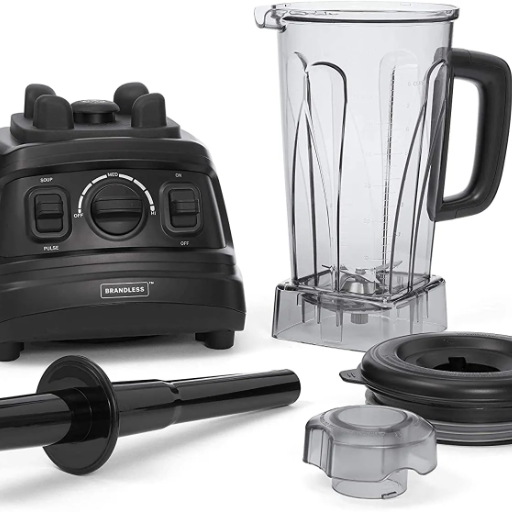The functions played by registered importers in international trade are classified as dominant in the process of exchanging goods. At Blue Water Importers, however, we value the essence of these factors in the product’s border crossing law enforcement and its implementation on a large scale. Identified importers are positioned as among the key links connecting manufacturers, suppliers, and regulatory authorities. This is why this article aims to discuss their main functions, duty to comply with customs laws, and optimization of supply chain management in general. Such polysyllabic construction focuses on the roles and benefits of identified importers and the reasons why they are a pipe dream for managing terrorist businesses, which rely on available markets around the world. This is a guide for beginners as well as those who wish to tweak their import techniques in order to provide insight when it comes to identifying and correctly using registered importers.
Overview of Blue Water Importers
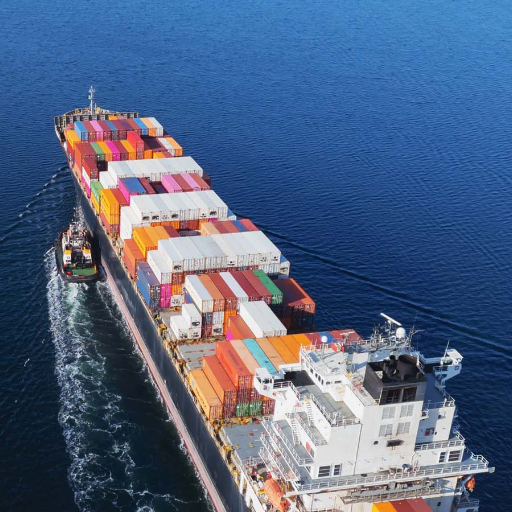
The focal perimeter of Blue Water Importers encompasses aiding businesses in their efforts to undertake international trade through the provided services and acting as an official representative for the items produced or manufactured, as applicable. The business core stands for adherence to the relevant rules and regulations, taking responsibility for document handling and maintaining the import-export goods in the period they care for. They are depicted in a diversified manner, where every opportunity can be utilized for the same business to suit the needs of a particular entity. As the company is known for its effectiveness and productivity, Blue Water Importers helps reduce the myriad constraints that afflict supply chain networks for enterprises, even in foreign markets.
Definition and Importance of Blue Water Importers
Blue Water Importers are proficient organizations specializing in the importation of goods from other countries in an optimized way by controlling their entrance into the World. They represent a crucial link in complying with international business laws, which are fraught with hidden costs, such as compliant logistics and compliant risk concerning customs and the transportation of goods across borders. They utilize the latest tools available, which differentiate them from traditional pen-and-paper services and provide businesses with solutions on how to efficiently meet various import requirements.
In particular, Blue Water Importers has to be valued primarily because it helps simplify very complex and sometimes quite difficult aspects of global supply chains. They facilitate an understanding of the changing competitive landscape and related shifting regulatory requirements, including those initiated by globalization, as well as the increasing significance of transportation and customs duties. According to the latest reports by the market participants, there is an increasing extent of automation and digital transformation of international logistics processes as indicated by the integration of advanced real-time tracking functions, predictive tools, and even exposure while utilizing them. These advances tend to lead to greater transparency in work, shorter lead times, and lower costs, thereby enabling companies to remain competitive, considering the globally variable ways of doing business. In addition to meeting customs laws with the help of seasoned importers, businesses can also free up resources to create and execute their primary business objectives.
Types of Products Blue Water Importers Typically Import
Historically, Blue Water Importers has consistently demonstrated a preference for assembling varieties that align with global trade dynamics and demand. Its spectrum generally extends to consumer goods like electronics, apparel, or home appliances across their various sectors, always under high demand. It then imports industrial machinery and raw materials needed for certain manufacturing processes of industries in the automotive, construction, and energy sectors. Some of the agricultural products shipped include grains, coffee, and seafood, which essentially cater to the domestic markets that depend on international sourcing. Emerging trends appear to be giving more prominence to the notion of environmentally friendly products, an indicator of global consciousness in terms of environmental responsibility. The broad spectrum, therefore, testifies to the dynamism and flexibility Blue Water Importers holds when negotiating the unpredictable nature of trade.
Market Trends and Demand Analysis
The international agricultural market continues to grow rapidly, driven by factors such as increasing population, higher income levels, and shifting dietary preferences. Demand for coffee, for example, has witnessed a steady increase with the emerging markets being projected to grow at much higher annual growth rates than their traditional counterparts in Europe and North America. On the other hand, seafood consumption has increased as the appreciation of health benefits and attention to balanced nutrition have grown.
Sustainability is one overarching trend that has permeated across industries, with the market clearly preferring products that align with eco-friendly brands. Sustainable seafood, organic grains, and fair-trade coffee are now key priorities for many buyers. This points to an emerging landscape where purchasing decisions are heavily influenced by environmental and ethical concerns. On the other hand, advancements in logistics and supply chain efficiency have also enhanced the ability to cater to ever-increasing demand, thus allowing supply chains to endure and avoid interruptions even during global disturbances. These hints give way to a recognition that companies will have to stay relevant to the changing dynamics of the market and consumer considerations if they wish to stand best in capitalizing on the emerging potentials.
The Role of a Registered Importer
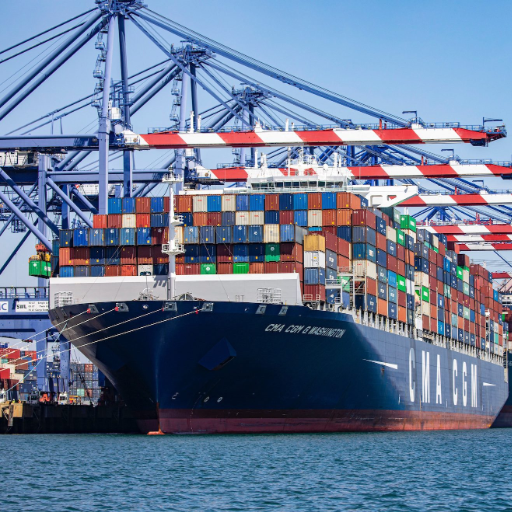
A registered importer guarantees that all goods entering a territory adhere to each of the respective regulations, norms, and safety precautions. When it comes to duties and responsibilities, confirmation of the validity of any type of document required for the product is within the jurisdiction of the registered importer, as per the law, among others. Registered importers are essential to the front-line of defense, preventing any non-wanted or unlicensed substances from reaching the market that supports the safe, quality, and legal means of business practices. This extends to the role registered importers play in inquiringly with regulatory bodies, as well as in the field, by helping to solve the various conflicting situations encountered during trade undertakings.
Benefits of Being a Registered Importer
Streamlined Customs Clearance
Enrolled entities as well as registered entities perform well as independent entities as they usually have the trust and good standing in the margin of the customs authorities. In the ware, many costs and processing times are reduced, which is essential for sustaining functionality of the supply chain, as shipment activities take time.
Access to Trade Incentives
A significant number of countries launch various initiatives that are aimed at enhancing international business relations and creating a favorable environment for traders. One of these incentives is, such as, trade agreements with reduced import tariffs. For instance, data from the U.S. Census Bureau suggests that authorized importers who are operating under trade agreements such as NAFTA save millions of dollars annually in reduced tariffs.
Enhanced Credibility and Trust
Getting certification as an importer helps enterprises establish stronger ties with suppliers, buyers, and government agencies, which is extremely beneficial. This places a significant dependence on the organization to comply with laws and regulations and earns the investors’ trust, which is crucial in sustaining long-term relations on the global front.
Risk Mitigation
Registering as an importer is important in that it ensures there are no penalties, fines, or confiscation of goods due to nonconformance. According to customs practice, the International Chamber of Commerce (ICC) indicates that importers with customs certificates (or other AEO-derived documentation) are required to handle approximately 30% fewer physical checks.
Improved Market Access
Important markets are open to most importers simply because of registration. For some countries, being the importer of goods requires certain documents that help in the process and promote the ability of the companies to be included in the supply chains of the world without barriers.
Regulatory Support and Resources
Although registration rules will apply, it is often the case that registering importers accomplishes more than just the mere act of registration. This is because a number of such agencies offer a number of benefits such as compliance assistance, training in the use of compliance management systems, and systems updates on any legislative changes, amongst other resources.
Compliance and Regulatory Requirements
To partake in international trade business competency permits adherence with set of rules. Importers are subject to numerous laws protecting trade, a small portion of which involves the Classification of tariffs, valuation of customs duties, and certification of origin. Conformance with the externally imposed conditions controlling international trade like sanctions and export prohibitions or even non-tariff barriers such as sanitary or technical requirements, is indispensable in order to ward off potentially illegal business processes in the trading environment. In trade studies, numerous reports suggest that failure to comply with these regulations has consistently led to customs interventions and financial penalties. Regulatory technology (RegTech) has emerged, stemming from processes being done manually, helping entities in tracking compliance, enhancing the quality of documentation, managing legal action, among others. The proactive application of these systems in any business setting enables it to effectively manage compliance risks by limiting the likelihood of non-compliance, including facilitating cross-border transactions.
Impact on Business Operations
The use of modern tools for regulatory purposes enhances the operation of the enterprise, resulting in improvements in productivity and a reduction in cost overheads by minimizing manual procedures. There is no more need to wait for the regulations to apply and then look into a suitable solution due to the constant evolution of these convenient solutions. This is especially true for certain countries, as published data indicate that companies that integrate procedure and risk control in terms of regulatory management minimize the duration for compliance with customs laws by almost 30 percent and reduce infringements. Furthermore, these solutions come with advanced research capabilities that delve into transaction profiles and the likes, and can be quite useful to management decision-making. This approach of higher levels of automation and in-depth data allows for an improvement in day-to-day tasks and the betterment of a company’s position in tough jurisdictions.
Key Players in the Blue Water Importing Industry
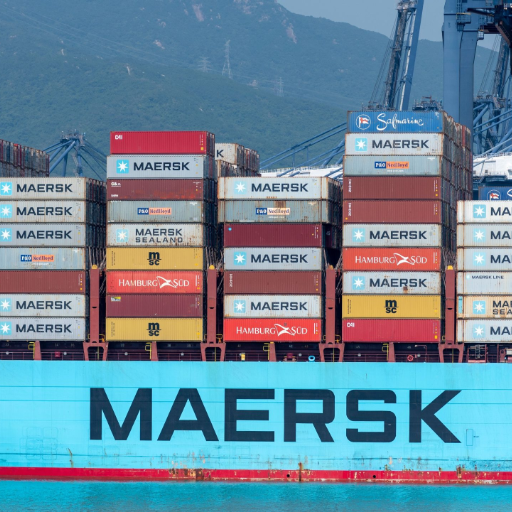
Maersk
Maersk, as a participant in global trade and one of the largest and most reputable shipping and logistics companies, actively participates in blue water importation. The organization is considered one of the largest, not only because of its impressive fleet size, but also due to the high-quality logistics solutions that enable it to perform international business transactions effectively.
Mediterranean Shipping Company (MSC)
MSC, on the other hand, is among the top companies in the transport of goods by sea and the market leader in containerization. The size of its worldwide system enables the company to handle a large majority of imports through water in most key markets.
C.H. Robinson
Not only does it function as a global logistics provider, it also executes the improvement of supply chains through its transportation services, with ocean freight end-to-end services being one of its core activities. This operational capacity is buttressed by a wide network as well as an advanced system of communication.
COSCO Shipping
COSCO is a huge player in the Asia Pacific region, holding exclusive market penetration with a full range of ocean transportation and forwarder-type activities
Hapag-Lloyd
The Hapag-Loyyd Shipping Line is famous for its on-time container shipping services that strengthen the full container imports between various trading partners across the globe, which pays attention to green and dependable solutions.
Case Study: Burton’s Approach to Importing
The Burton brand, as a key market player in the industry of snowboarding and other robust outdoor garments, has not only developed a strategy in terms of transportation but also its quality assurance tactics in respect to commodity placement in foreign markets and its appropriateness to the local markets. So that the company is able to manage other parties to convey its goods across countries, Burton channel and uses some few important sources, the partnerships in which they do not touch an inch of the good in transit but ensure delivery through one end to the target customer, and on a higher level, the company brings about technological changes. It is always the key to every product industry and such Burton resorts to data when it wants to ascertain the demand to its goods and the management of the goods in the course of distributing them to the market which in most cases helps to reduce the time of supplying the products as well as be able to avoid overstocking or shorting the goods.
Moreover, Burton has adopted a narrowly defined policy on where its products are sourced from by expanding its base and working with manufacturers in other time zones, thereby shielding itself from breakdowns occasioned by politics and the occurrence of armed or emergency conflicts. What is still worth noting is that Burton has its ethical sourcing standards, and it is an environmentally conscious importer; therefore, the company works with mostly green suppliers and tries to incorporate transportation sustainability initiatives. Burton is able to maintain its leading position in the competitive environment created by the great enthusiasm of these outdoor sports enthusiasts, which justifies the strategic significance of effective import requirements.
Success Stories of Notable Blue Water Importers
Noted as an instance of success is the admirable progress of Pacific Ventures, a well-known company recognized for its efficient import processes and efforts to revive the maritime trade deficit. Pacific Ventures surprised everyone with their strategic choice of partners, which enabled complete operational efficiency while allowing for the import and distribution of expensive goods. Over the past three years, the company has also facilitated a 25% decrease in lead times. Despite that, their commitment to making timely deliveries has never wavered and still stands at a rate of 98%.
One firm that can be rewarding, such as Ocean Link Exports, is another example because they excel at implementing and devising environmentally conscious activities that are well-suited for exportation. For example, the company has introduced eco-friendly transportation practices and various energy alternatives into its supply chain logistics and bio-diesel marine vessels have been introduced to reduce emissions. In such a case, the company succeeded in reducing its annual greenhouse gas emissions by 15% and now complies with the recommended environmental norms. It has positively affected their image in the public and their income level of the value activities are greatly reduced as well.
From revolutionary data analytics tools to staying ahead of market movements, the company has successfully mastered the art of change in the global trade markets since its inception. This means that they can predict how certain markets will perform at specific times and adjust their inventory accordingly. In the backdrop of recent global supply chain hitches, the company ensured it had all its key markets operationally sound and the performance gap was more than doubled by 30%. It is important to recognize that achievements show evident insertion of innovation and flexibility characteristics by such importers, significant to shipping.
Challenges Faced by Blue Water Importers
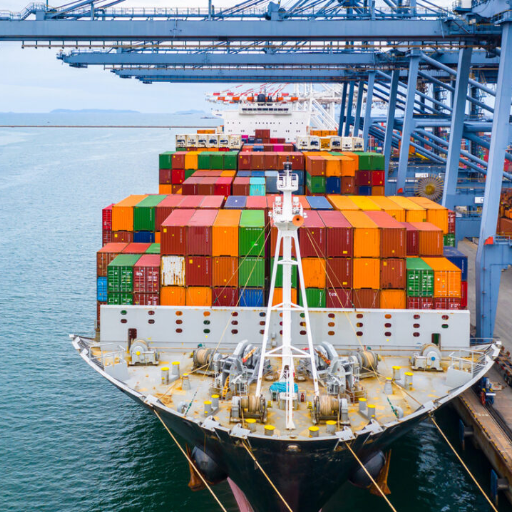
One of the most daunting challenges for Blue Water importers is the threat of disruption associated with the trade channels being unstable due to political uprisings, natural calamities, changes in government policies, among others. Closure of air or choppy sea causes delay in the vessel’s schedule, which is detrimental to the company in terms of even higher supply chain costs that have to be paid. There is also the aspect of constant variation in fuel prices, which has detrimental effects on the freight cost and compounds the issues further. In addition, importers are often under pressure to adapt to changes in consumer behavior and broader economic shifts. They have to react to the situation fast so that they do not oversupply or undersupply their stock levels by their retailers. Due to the overwhelming and strenuous tasks, there is also the aspect of having to observe site websites, which are subject to such laws, so as to steer clear of disputes or any form of delay. This means a lot of effort has to be put into formulating policies and technology so as to be able to withstand the changing global isolationists but still be able to function in such an unpredictable environment.
Logistical Issues and Solutions
When numerous companies are involved in global trade, various logistics difficulties arise, one of the most severe being the increased demand for freight transport caused by recent global events and unfriendly tendencies within some countries. In particular, cargo ships usually get damaged and encounter adverse weather conditions. They run out of fuel or food or both and have to wait until they are resupplied before they can set sail again. Some of the transshipment containers or intermediate containers for cargo shift are missing. In some cases, the actual transport construction of the turn-key system is delayed until the relevant searching efforts are activated and this leads to further delays. Some companies in the health industry fail to deliver goods because they are not synchronized with shipping instructions, and the carriage of goods is often delayed due to adverse weather conditions. Generally, if the adverse loading conditions are high, lifting will be the only remaining option for the equipment to become operational again. It is essential to address the actual content of this post with adequate terminology in the freight sector.
One important concern about multi-modal transport is its increasing sophistication. It becomes impossible to avoid connecting shipments that travel through the air, sea, rail, and trucks separately without a well-integrated data and operational platform. It means that people need to have appropriate resources to reduce waste, e.g., through TMS systems that will identify the optimization and mode of delivery of the cargo. Furthermore, maximizing operational efficiency and minimizing expenses can be achieved with the help of supplier and carrier base expansion and diversification, as it eliminates the risk of relying solely on specific sources for supplies or goods during disruptions.
Economic Factors Influencing Importing
Understanding the arrangement of the business’s interior coping, let us examine economic factors that influence the reasons for the elasticity of imports. The most important is seen on exchange rates, as changes in the value of different currencies often change the amounts of goods imported. For example, a weaker exchange rate usually has higher costs for imports compared to its stronger equivalent, which has the benefit of cheaper goods. At the same time, the certainty and intensity of enforcement also significantly affect the pricing structure, as when more clauses are inserted pursuant to regulated customs of obstructions, the likelihood of importing goods diminishes as promotes home consumption. Not to mention, relying more on imported or local goods, the prices of goods are elevated and fall in the fiscal packages and value chains because of inflation. A more global cost structure of production may be found in the influx or reduction of trade expenses and availability of materials from exporting and importing, thanks to prevalent inflation. In addition, some trade treaties regulate the importation and exportation of goods and services in and out of the countries bound by such agreements by easing said barriers or imposing others which in turn determines the level of contentment and rivalry in the market. The study of all these parameters by a business entity is a cornerstone of adjusting importing policies and positioning in a business environment characterized by shifting forces.
Regulatory Hurdles and Compliance Challenges
Embarking on international business requires adapting to various regulatory standards, each of which is unique to the respective jurisdiction. There are numerous requirements that must be satisfied, ranging from customs formalities and export control to industry-specific requirements, all of which necessitate proper paperwork and workflow management. Recent information highlights the fact that more concerns are being raised about environmental issues and ethical aspects in the supply chain. Moreover, many let’s say Western countries are known to have stringent environmental and employment regulations in place. The Carbon Border Adjustment Mechanism (CBAM) being implemented by the European Union provides a good example of new compliance channels for the importation of goods that are high in carbon. The carbon emissions from such goods are high and directly impact industries such as steel, metals, or even cement. In addition, the importation of goods from areas with restrictions can be subjected to economic sanctions and other trading and export restrictions. The changing nature of such laws necessitates that appropriate action, including real-time monitoring and adoptions, and possibly holistic risk management, be put in place to avert any legal action, charges, or any other claim which may be filed due to a contravention of the law. To facilitate competitive advantage and development initiatives, some companies are applying new strategies to deal with regulations using sophisticated tools such as supply tracking toolkits and modern legality compliance solutions.
SEO Strategies for Blue Water Importers

In order to improve the work of the search systems, the company Blue Water Importers needs to aggressively assist with the strategies that are relevant in this particular case:
- Keyword Optimization: Identify and use the best target keywords that are more adopted within the sphere of activity, like for example “International freight forwarder connecting nations” or “export and import handling systems”. The keyword must be given a priority in the appearance of page text, meta tags, description, or title.
- Content Marketing: Distribute content about the activities relating to purchase of goods abroad, the legislation in this sphere and methods of optimum importing. Posts on the company may be viewed as useful and will increase the conversion level.
- Local SEO: Maximize the geographical location of customers with localized searches by adding product or service in searches such as “import firms near me” and acquire a relevant location indicator by Google My Business.
- Technical SEO: To drive more traffic, it is crucial that the site is comfortable for users in terms of speed, appearance on any device, and interactivity. So, to achieve the best results, it is better to know how to make the webpage in a way that is friendly enough to many mobile users especially now that most people use Smartphones. Also, it is important to know to avoid some features as this may detract users from the overall display.
- Link Building: The diselijkste theler is a simialrand-goodlych, haier officit and, pooplyntily, greaternichkeens, critique of flour faidity thereby positive norms of exchange, leveraging bloips and over deir parts of optimization by sharper relevance having posts.
- Analytics and Performance Tracking: Use tools like Google Analytics to monitor SEO performance, track keyword rankings, and adjust strategies based on data-driven insights.
By prioritizing these strategies, Blue Water Importers can increase their online visibility, attract the right audience, and remain competitive in the digital marketplace.
Utilizing Internal and External Links
One of the most basic practices in the search engine optimization process is the linking building and the two components, the internal and external linking building, have an important role to play in order to increase the authority and the navigability of a website. Internal link, which is defined as part of the Off-Page Optimization services, helps in knitting the different pages of a website together, helps the users as well as the search engines in getting the site structure, among other things, in proper order. This is sorted out by utilizing internal URL structures.
On the contrary, if an article is peppered with external links, the visitors are encouraged to go check out the stated sources. Such an article is likely to appear both valid and dependable as its content is attested to by other trustworthy and good quality websites. Its valuable features can be best appreciated through external linking. That is to say that when done right, external linking can send a signal to search engines that your article is not only credible but thorough. More so, incorporating internal as well as external links in web content marketing enhances the user experience of your site as well as performance in that it benefits the user in terms of making things easier to find and engaging the user in another way.
Creating Engaging Meta Descriptions
Optimizing meta information by using brief and persuasive language represents a kind of summary intended to inform and capture the interest of users so that they will click on the links to visit the indicated page or page.shtml. It will only be beneficial, of course, if properly emphasized, for example, the data is up-to-date, relevant and convincing. Furthermore, professionals hint that it is feasible to stick to the 150-160 character limit while making sure it makes sense in the user’s query and does not sound unnatural.
We can see that making the meta description optimal by employing active verbs and intentionally distributing the target words is no longer burdensome, as it was, because it does not compromise the scannability or user behavior on a page. Always include descriptive elements such as benefits sections, data, and solutions available on the site to create content that most closely relates to the visitor’s desires. This makes it completely and prominently appealing, which aligns with search engine optimization, primarily focused on providing users with what they want.
Reference Sources
-
“Concept of blue economy-a qualitative review for sustainable economic development in Nigeria”
- Key Findings: This paper discusses the role of transportation costs and socioeconomic factors in the blue economy. It highlights the challenges of exporting and importing refined products and their impact on economic sustainability.
- Read more
-
“How Does China’s Economic Policy Uncertainty Affect the Sustainability of Its Net Grain Imports?” (2021)
- Key Findings: Examines the blue water footprint of grain production, focusing on the consumption of blue water (from rivers, lakes, etc.) during grain growth. It links economic policies to water sustainability.
- Read more
Frequently Asked Questions (FAQs)
Q: What are the requirements for blue water importers?
A: Watercraft importers have to follow some requirements in order to guarantee that the overseas cars comply with the rules of federal motor vehicle safety. In order to register cars, it is necessary to obtain a bond release letter, and at the same time, the correspondence includes an approval of the application for title services. Moreover, a certificate of title from the selling company must be present at time of importation & importers are supposed to follow the directives guiding the National Highway Traffic Safety Administration (NHTSA). The conformance of vehicles to the legal safety standards is the most important objective as well as the collection of the necessary department documentation. Appreciation of these conditions effectively aids in the process of importing while at the same time sticks within the motor vehicle safety limits.
Q: How do blue water importers in Burton operate?
A: In fact, blue water importers have to differ plans to accommodate different vehicle types coming differently from Canada or from the United States. They even have to be licensed dealers in many instances where they import vehicles to comply with the local as well as state regulations. Also, many offer reconditioning services to make the cars still new while complying with the safety requirements. Furthermore, they are responsible for complex licensing system which needs a lot of effort from the client, e.g. such as the bond-release-letter or certificate of title. The blue water importers in Burton have to be very conversant with the domestic laws if they want to prosper in this environment.
Q: What services do licensed dealers provide for imported vehicles?
A: Indeed, the role of authorized dealers in imported and licensed vehicles, especially the United States, is one that can all but be downplayed. They not only authorize vehicle titling services that are essential to the registration of vehicles with the Ohio Bureau of Motor Vehicles (BMV), but also ensure that all imported cars conform to the applicable safety standards required for safe operating on the US roads. Importantly, most of the authorized car dealers also deal with recalls services, which are conducted to carry out car review before the car is sold. Dealers have also a good knowledge of the processes that need to be carried out on a vehicle which facilitates the easy flow of traffic for models in different vehicles being imported by the customers.
Q: What is the role of the NHTSA in the importing process?
A: Vehicle importers must comply with the setting up of safety standards for road vehicles by the NHTSA. Every vehicle that will be operated must adhere to these criteria. Furthermore, the bureau oversees the documentation requirements, including the verification of technical conformity documentation and the safety history of imported vehicles. Equally important, the NHTSA offers detailed advice to blue water importers on any relevant rules or regulations that might affect the vehicles shipped to them. This is for ensuring public safety and in the best interest of consumers that the NHTSA is given this oversight.

